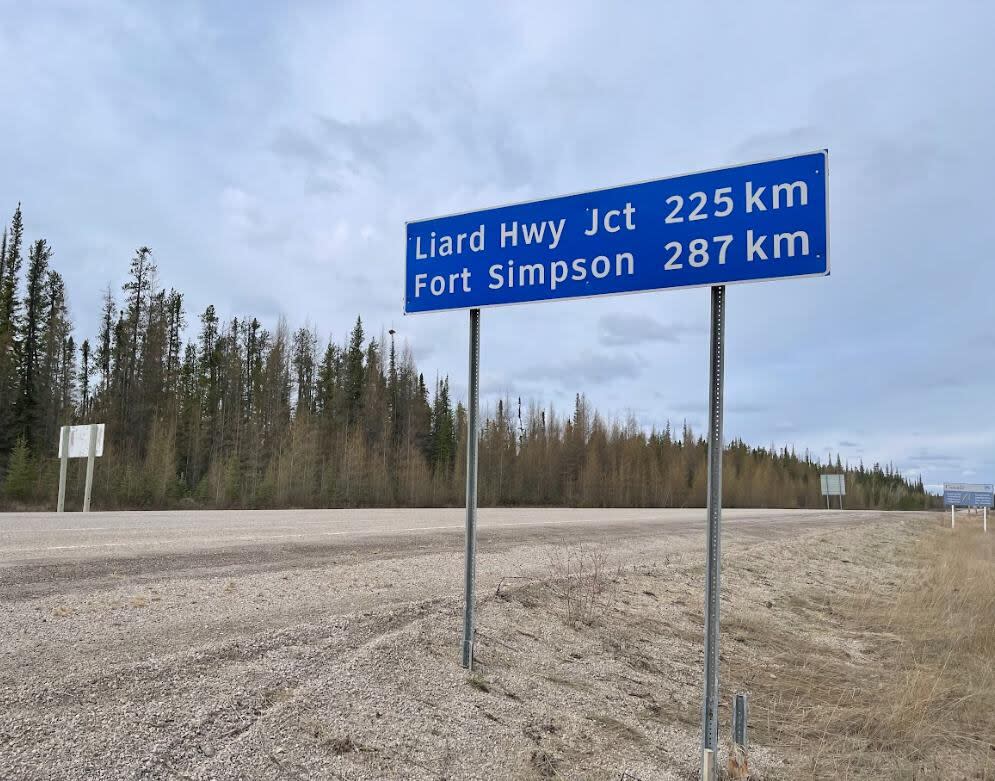Some N.W.T. communities forced to make other evacuation plans as wildfires close roads

Three communities in the N.W.T. Dehcho region with road access are being threatened by wildfires that are preventing them from leaving by vehicle.
The communities of Fort Liard, Fort Simpson and Jean Marie River are now forced to come up with emergency plans that don't involve the highways that have been closing intermittently over the past week.
In 2023, several communities in the South and North Slave, including Fort Smith and Yellowknife, evacuated partially because the road was at risk of being cut off.
On Monday, nearly the entire length of Highway 1 was closed down. According to the highway conditions map on Tuesday morning the highway had reopened, but there are advisories on the road and warnings it could close in short notice.
This, along with the closure of Highway 7, which connects the N.W.T. to B.C., left those three communities with no road escape.
John McKee, Fort Liard's senior administrative officer, said the hamlet has plans to use the local airport if an evacuation is needed while the highway is closed.
He said if they needed to fly, it would require multiple planes to take out the approximately 500 people who live there.
"The runway here is short, so we would have to use aircraft, probably around 40 people per aircraft," he said, adding it would be limited luggage in that situation.
McKee said they don't know where they'd be flying to.
"It'll matter where we can get to, the conditions at the time, it will be one of the larger centres though, Yellowknife or Hay River," he said.
McKee said he is relying on the experts with the N.W.T.'s Department of Environment and Climate Change to determine when it is time to declare an evacuation.
Fort Simpson also relying on ECC for recommendations
Sean Whelly, mayor of Fort Simpson, said the community emergency response committee did discuss the idea of declaring a local state of emergency, but decided not to.
He said there were a couple reasons why, including people maybe not recognizing the difference if a real emergency hit.
"Or else if the emergency goes on too long, people might revert back to 'well it can't be an emergency,'" he said.
Whelly said the community will rely on ECC to determine when it is time to declare an emergency and when it's time to evacuate.
But Whelly said the village will regularly inform residents on the situation, including through the local radio station.
He said the community emergency response committee will meet weekly to discuss the wildfire situation.
Whelly said the village is planning to distribute a survey that people can fill out to determine how many residents would need to fly out in an evacuation and who would need assistance with pets.
He said the fire by the checkpoint was concerning for residents, considering its proximity and the fact it's blocking the road.
But he said it did rain in Fort Simpson on Tuesday, which brought some relief.

